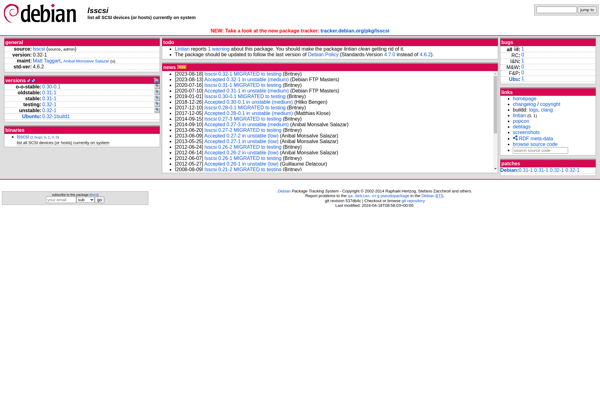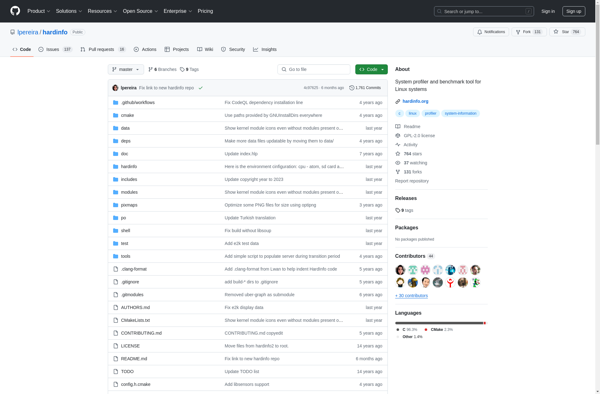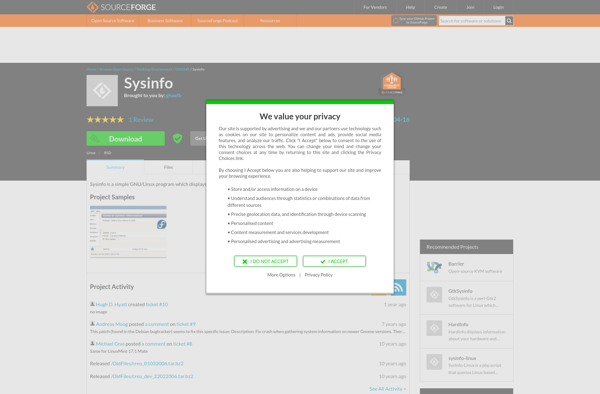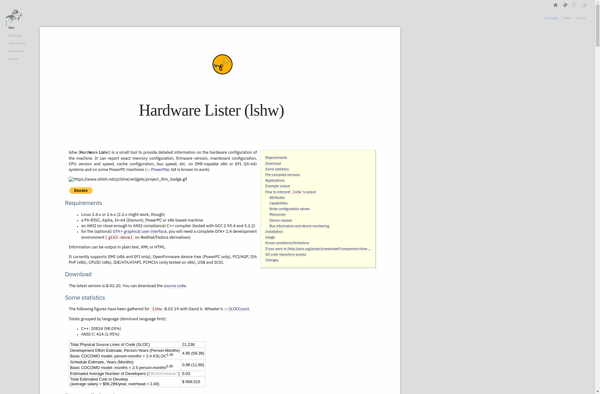Lsscsi

lsscsi: List SCSI Devices
A command-line tool providing detailed info on connected SCSI devices and hosts on Linux systems.
What is Lsscsi?
lsscsi is a command-line utility for Linux that is used to list information about SCSI devices connected to the system. It provides more detailed information than simply listing block devices. lsscsi is often used by system administrators or storage engineers to troubleshoot issues with SCSI devices or busses.
Some key features and information provided by lsscsi includes:
- Listing the SCSI host number, channel, ID, and LUN for connected devices
- The type of SCSI device (disk, tape, CD-ROM, etc)
- The model name and serial number of devices
- The transport protocol used (SCSI, SAS, SATA, USB)
- Advanced information like negotiation settings or port speed
lsssi can list devices that may not have any filesystems created on them yet. This allows discovery of hardware that is not yet partitioned. It provides more info than lsblk because it reports directly on the SCSI device layer. Overall, lsscsi is a simple but powerful tool for system admins and engineers to troubleshoot Linux SCSI subsystems.
Lsscsi Features
Features
- List SCSI devices or hosts on Linux systems
- Provide detailed information about connected SCSI devices
- Display vendor, model, and other device-specific information
- Support for various SCSI device types, including disks, tapes, and CD-ROMs
- Ability to filter output by device type, bus, and other criteria
Pricing
- Open Source
Pros
Cons
Reviews & Ratings
Login to ReviewThe Best Lsscsi Alternatives
Top System & Hardware and System Information and other similar apps like Lsscsi
Here are some alternatives to Lsscsi:
Suggest an alternative ❐GNOME Disks

Hardinfo

Sysinfo

Lshw

Udev Discover

Lsdisk
